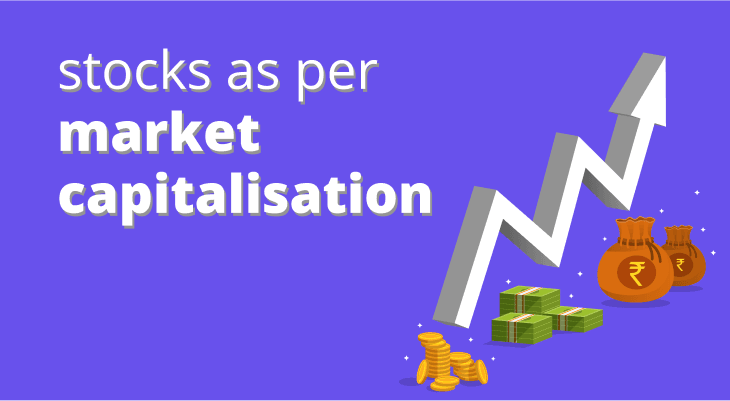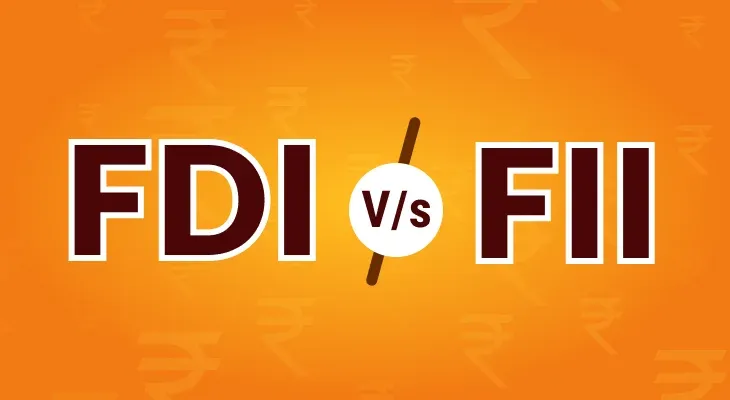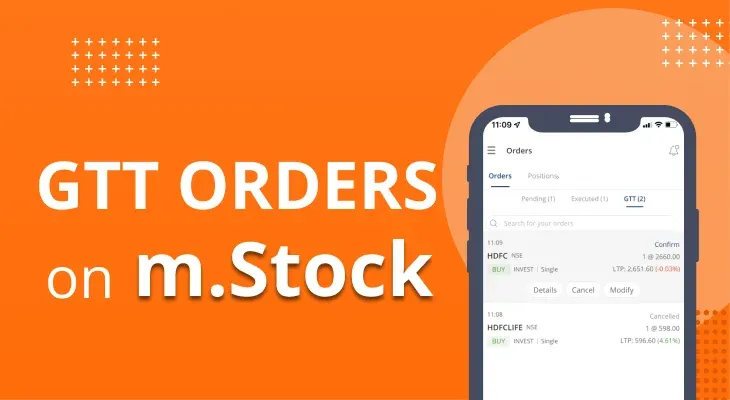
Stock Vs ETF: Difference Between ETF and Stock
When it comes to investing in the stock market, two popular choices are stocks and exchange-traded funds (ETFs). While both offer opportunities for wealth creation, they differ in structure, risk level, diversification, and overall investment strategy.
For beginners, understanding stock vs ETF can help in selecting the right investment option based on financial goals, risk appetite, and market knowledge. This article provides a detailed comparison between stocks and ETFs, including their features, advantages, disadvantages, and key differences.
What is a Stock?
A stock represents a unit of ownership in a company. When you purchase a stock, you become a shareholder, meaning you own a small portion of the company’s assets and earnings.
Features of Stocks:
- Direct Ownership – Buying a stock gives you direct ownership in a company, allowing you to benefit from its growth.
- Potential for High Returns – Stocks have the potential for high capital appreciation if the company performs well.
- Dividend Earnings – Some companies pay dividends to shareholders, providing a passive income stream.
- Liquidity – Stocks are highly liquid as they are traded on stock exchanges, allowing easy buying and selling.
- Price Volatility – Stock prices fluctuate based on company performance, market conditions, and investor sentiment.
- Risk Factor – Individual stocks are riskier because their value depends solely on one company's performance.
Example:
If you buy 10 shares of Tata Consultancy Services (TCS) at ₹ 4,000 each, your total investment is ₹ 40,000. If TCS stock price increases to ₹ 4,500, your investment value rises to ₹ 45,000, giving you a profit of ₹ 5,000.
Importance of Operating Margin in Business Analysis
What is an ETF?
An Exchange-Traded Fund (ETF) is an investment fund that holds a diversified portfolio of stocks, bonds, or commodities. ETFs trade on stock exchanges like individual stocks, but they provide broad market exposure with lower risk.
Features of ETFs:
- Diversification – ETFs invest in multiple assets, reducing the impact of a single company's poor performance.
- Lower Risk – Since ETFs track an index or a basket of securities, they have lower volatility compared to individual stocks.
- Passive Investing – Most ETFs follow a passive investment strategy, tracking an index such as the Nifty 50 or Sensex.
- Cost-Effective – ETFs have lower expense ratios compared to mutual funds, making them a cost-efficient investment.
- Liquidity & Flexibility – Like stocks, ETFs can be bought and sold during market hours at live prices.
- Dividend Earnings – Some ETFs distribute dividends received from underlying stocks to investors.
Example:
Suppose you invest in the Nifty 50 ETF at ₹ 200 per unit, buying 100 units for ₹ 20,000. If the Nifty 50 index rises, the ETF price may increase to ₹ 220, making your investment worth ₹ 22,000 and earning you a ₹2,000 profit.
Key Differences Between ETF and Stock
Although stocks and ETF are both equity-based investment options, they differ on several parameters, such as:
- Ownership: Stocks give you ownership of a single company, while ETFs offer diversified exposure to multiple companies or assets.
- Risk Factor: Stocks carry higher risk due to dependence on one company’s performance. ETFs distribute risk across multiple securities.
- Diversification: Stocks focus on one company, whereas ETFs invest in multiple securities, offering built-in diversification.
- Management Approach: Stocks require active management, meaning investors must research and monitor individual companies. ETFs follow a passive approach and track an index, requiring less frequent intervention.
- Liquidity & Trading: Both stocks and ETFs are highly liquid, but ETFs might have slight price differences due to bid-ask spreads.
- Dividends: Some stocks pay dividends, while ETFs may or may not pass dividends to investors, depending on their structure.
- Investment Costs: Trading stocks incurs brokerage fees, while ETFs have expense ratios but typically lower transaction costs.
Stock vs ETFs: This table encapsulates the key differences to help you decide between the two investment options.
Feature | Stocks | ETFs |
Ownership | Ownership in a single company | Investment in multiple assets |
Risk Level | High (depends on one company) | Lower (diversified holdings) |
Diversification | No diversification | Broad market exposure |
Management | Requires active tracking | Mostly passively managed |
Liquidity | High | High but may have bid-ask spreads |
Dividends | Some stocks pay dividends | Some ETFs distribute dividends |
Cost | Brokerage fees apply | Low expense ratio & trading costs |
Pros of Investing in Stocks vs ETFs
Advantages of Investing in Stocks:
- Higher Return Potential – Individual stocks have the potential for significant price appreciation, especially if you invest in a well-performing company. Some multibagger stocks turned small investments into big returns over time.
- Control Over Investments – You have full control over which stocks to buy or sell, how long to hold them, and when to exit.
- Dividend Income – Many companies pay dividends, providing investors with a passive income stream while still benefiting from stock price appreciation.
- Short-Term Trading Opportunities – Stocks allow for day trading, swing trading, and momentum trading, enabling traders to profit from short-term price fluctuations.
Advantages of Investing in ETFs:
- Diversification Reduces Risk – ETFs hold a basket of stocks, reducing the impact of any single stock performing poorly.
- Lower Fees – ETFs generally have lower management fees and expense ratios than actively managed mutual funds, making them cost-effective for long-term investing.
- No Need for Constant Monitoring – Since most ETFs track indexes like Nifty 50 or Sensex, they don’t require constant research or active management. This helps save both time and effort.
- Steady and Predictable Growth – ETFs generally provide market-average returns, which can be safer and more predictable than individual stocks.
- Easier for Beginners – ETFs provide a structured way to gain exposure to different sectors or the entire market without needing to analyse individual stocks.
Cons of Investing in Stocks vs ETFs
Things to Watch Out for While Investing in Stocks
- High Volatility & Risk – Individual stocks can experience sharp price swings, which can lead to sudden losses if the market turns unfavourable.
- Time-Consuming Research Needed – Investors must constantly track earnings reports, market trends, and economic conditions to make informed decisions.
- Emotional Decision-Making – Many investors panic and sell during market downturns or make impulsive investments during market rallies, leading to losses.
- Brokerage & Transaction Costs – Trading stocks frequently incurs high brokerage fees, impacting overall profitability.
- Company-Specific Risks – A company may face fraud, management issues, or legal troubles which can cause stock prices to crash unexpectedly.
Disadvantages of ETFs
- Limited Upside Potential – ETFs provide market-average returns, meaning investors miss out on high-growth opportunities from individual stocks.
- Tracking Errors – Some ETFs do not perfectly replicate the index they track, leading to minor deviations in expected returns.
- Expense Ratios Apply – Though lower than mutual funds, ETFs still charge a small fee for fund management, which slightly eats into long-term profits.
- Less Customisation – Investors cannot pick individual companies within an ETF; they must buy the entire basket of stocks included in the fund.
- Illiquidity in Some ETFs – While most ETFs are liquid, some sector-based or thematic ETFs may have low trading volumes, making it harder to exit a position at the desired price.
Things to Keep in Mind
- Risk Appetite: If you have a high-risk tolerance and market knowledge, investing in stocks may be suitable. For conservative investors, ETFs are a better option.
- Investment Horizon: Stocks are better for long-term investors who can withstand market fluctuations. ETFs suit both short- and long-term investors.
- Diversification Needs: If you want exposure to multiple assets without picking individual stocks, ETFs are a smart choice.
- Market Knowledge: Stock investing requires research and analysis, while ETFs offer a simpler, passive investment approach.
Stock vs ETFs: Which is the Better Option?
There is no universal answer to Stock vs ETF — the right choice depends on your investment goals.
- Choose Stocks if: You are an active investor, comfortable with research and market fluctuations, seeking high return potential.
- Choose ETFs if: You prefer diversification, lower risk, and a passive investment approach with stable growth over time.
For beginners or those who want a balanced approach, combining both stocks and ETFs in a portfolio can be an effective strategy. Stocks offer growth potential, while ETFs provide stability and risk management, creating a diversified investment plan. In either case, research thoroughly, and ensure that your decision aligns with your goals and risk tolerance.


